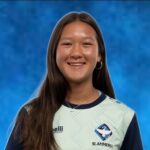Soccerwire Q&A: VCU men’s head coach Dave Giffard talks recruiting at Jefferson Cup
By Michael Willis
Out of the plethora of NCAA Division I colleges from around the country in attendance at the Jefferson Cup this weekend, one of the more prominent schools is actually a local one.
Virginia Commonwealth University, or the VCU Rams as they are more commonly known, compete in the Atlantic Ten conference in soccer. Last year, they finished second in the conference with a 6-1-2 record (12-4-5 overall) and bowed out in the second round of the NCAA Championships after a 3-2 double-OT thriller against Syracuse. Some of their more distinguished alumni include MLS standouts Dominic Oduro and Gonzalo Segares.
Their head coach, Dave Giffard, is in his third year at VCU, and we got to ask him a few questions about the D1 experience and his thoughts on some of the players they are looking for.
Soccerwire.com: What is the biggest selling point for VCU to potential recruits?
DG: We can offer a super-competitive and professional environment as it relates to soccer. We have a wonderful university of 32,000 students. We have a professional and nurturing atmosphere to help players develop and reach their goals and dreams.
SW: What are some of the biggest challenges for incoming players to major D1 colleges?
DG: The biggest adjustment for kids is the speed of play. The decision making, the spacing, everything happens a lot quicker. You have a lot of talented and technical players out here at the Jefferson Cup, and at a lot of recruiting events, but one of the biggest adjustments coming into school, even for top players, is the speed of the game. Things just happen a lot quicker. There’s a much smaller margin for error. The right decision, the wrong decision, the things you do, they’re all big adjustments.
SW: What do you look for in a recruit?

DG: We look for talented, technical, hard-working, driven players. Players who are very competitive, and looking to see how good they can be.
SW: There is a debate among coaches at this tournament, at least the ones I’ve talked to, about whether they want to recruit a very technically sound player who works on skills in the offseason, or a player who is more athletically fit and fast than he is technically mastered. Where do you stand?
DG:[We] value a player with technical ability over someone with great speed and conditioning. At the end of the day, by the time players get to us, their technique is not going to easily grow a whole lot. It’s not going to easily grow with our group. If you want to improve as a player, technically, once you get to [the college-level age], you’ve got to put in a lot of hours on your own. Whether it’s against the wall, on a racquetball court, wherever it is.
I think there is some merit to going [into college] as fit as you can [however], which would allow you to make decisions without being fatigued. Like I said, the game happens a lot quicker. There are so many different choices to make, and I think when you’re fatigued, it just adds to the cloudy head feeling [that causes errors in judgement on the pitch].”











